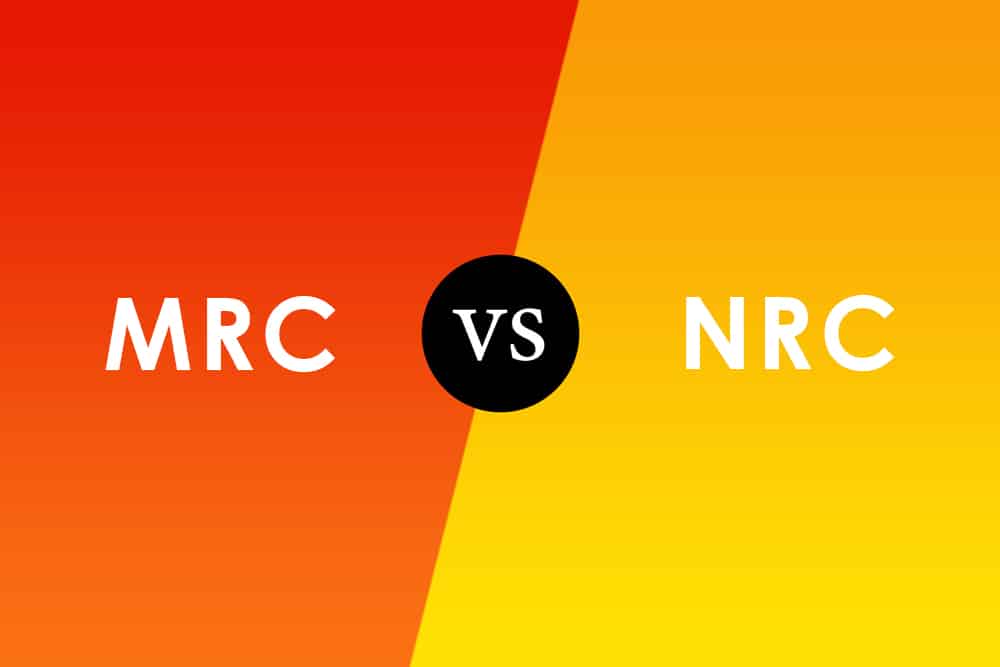
DISCLOSURE: This post may contain affiliate links, meaning when you click the links and make a purchase, we receive a commission.
The way we are charged for a product or service has changed considerably through the years, with monetization models today being vastly different than those we would more commonly see even only a few decades ago.
Subscription-based payments (MRC) are a hallmark of our current times, with almost everyone who remains connected to the world around them now paying for a service or two through a subscription-based model. But when put against good old-fashioned one-time payments (NRC), which really, in your opinion, comes out as preferable?
What Is MRC and NRC
MRC stands for “Monthly Recurring Charge”. This is when a service provider charges you for the service that they provide on a month-to-month basis, with you retaining access to their service for the period of time that you continue to pay.
In this way, the service provider usually charges you for and subsequently renews your subscription to their service automatically each month. NRC stands for “Non-Recurring Charge”, and as you might have guessed, this form of monetization is when a service provider charges you a fee as a one-time expense.
After this free, you receive full access to the service you paid for, essentially making this a down payment. This is the more traditional way of doing things, as it brings along fewer complications than the subscription model.
MRC vs NRC
These two methods both have their pros and cons, with each offering various levels of convenience to the consumer and different financial and non-financial benefits to the business that employs them. We’ve compared them below so you can judge for yourself which model suits you better.
When Do You See MRC And NRC Implemented
Non-recurring charges, as previously discussed, are essentially down payments. This means that they are used by many businesses that even have a subscription model to ensure that your customer is willing to pay for your initial services before moving them on to any monthly-recurring charge. In this context, it can also be seen as similar to a security deposit.
On the other hand, the charge that you regularly pay to a domain registrar for rights to your domain can be considered a monthly-recurring charge. Because of how the two intersect, in the context of web hosting, clarity on both non-recurring as well as monthly recurring payments is essential in helping your telecom expense management.
Is It a One-Time Charge
In the case of Non-Recurring Charges, yes, your payment is essentially a one-time thing, after which you will gain full access to whatever product or service it is that you paid for. This is at the heart of non-recurring payments and is, therefore, one of its immutable characteristics.
In the case of Monthly-Recurring Charges, however, it is not so simple. By definition, yes, your charge will have to be renewed at the end of each month. However, nowhere does it say that this charge has to be automatic and will hence be a constant expense to you that you will be bound to pay for.
All of that depends on the contract regarding your deal with your service provider. It is because of this that consumers have the opportunity to take advantage of monthly recurring payments in many scenarios as if they were one-time payments.
For example, by paying for and having access to a service for one month before deciding not to pay for any subsequent months. If you got everything you wanted out of the service in that month, it’s a favorable scenario for you.
Which Is Riskier
Non-recurring payments, even in the case where you pay by giving the service provider access to your credit or debit card information, are relatively low-risk as long as you make sure that the provider themselves are fully trustworthy.
For MRC, however, risk should become much more of a concern for you. This is because, as it goes without saying, you would essentially be giving a service provider not only access to your banking accounts but also total authorization, in many cases, to automatically charge you, which can potentially lead to a lot of fraud and scams if you aren’t careful.
Even in the case where the service provider themselves are infallible with regards to trust and very well-reputed in the mainstream market, any online service is still prone to security flaws and exploits that can lead to website-wide hacks. This can result in these hackers gaining access to everyone on the site’s banking information, putting you, a subscriber to the site, in jeopardy.
It is, therefore, pertinent to ensure that you are only using automated MRC for only service providers that are authentic and those you can trust to make it all work for you in a safe manner. Though even with these precautions, you would still be taking a risk with respect to hackers, however small that risk itself may be.
MRC vs NRC: Verdict
The table below can better help illustrate the differences between monthly recurring and non-recurring payments:
| Monthly-Recurring Payments | Non-Recurring Payments | |
|---|---|---|
| Are they pertinent in the context of web hosting? | ✅ | ✅ |
| Will you be charged regularly? | ✅ | |
| Is it likely to pose a risk? | ✅ |
So, which should you opt for, given the opportunity? Well, seeing how for the same product or service, an NRC is bound to cost you more than the MRC would, we would suggest opting for the monthly recurring payments if your goal is to retain access to that product or service for a shorter period of time.
However, under the same condition where you instead want permanent access to that product or service, NRC are bound to be significantly more convenient and less costly to you. All of the previously discussed factors will, of course, also need to come into play during your consideration.
Conclusion
MRCs are charged to you on a monthly basis, while NRCs are those that you need to pay once. Though both are pertinent to understanding and traversing through the world of Webhosting, given the opportunity to choose, you should definitely sift through the varying pros and cons of each before opting for either.



